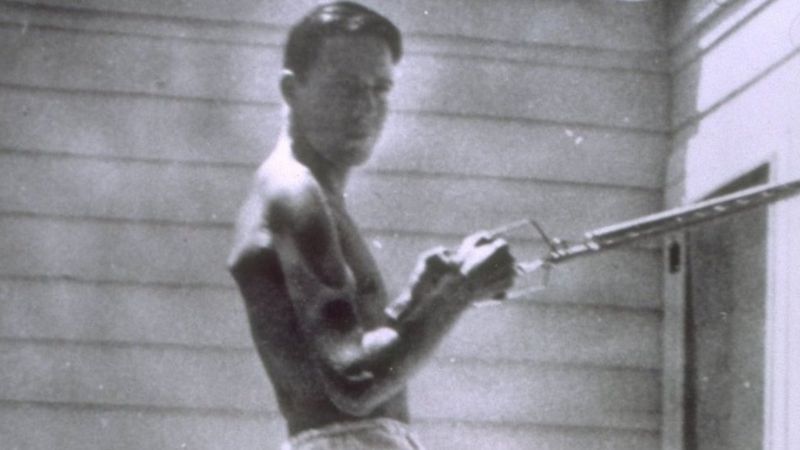Veteran Republican leader Bob Dole dies
Bob Dole, a World War Two veteran who went on to be a long-time Republican senator and US presidential candidate, has died aged 98.
His death was announced in a statement from the Elizabeth Dole Foundation: “It is with heavy hearts we announce that Senator Robert Joseph Dole died early this morning in his sleep. At his death, at age 98, he had served the United States of America faithfully for 79 years.”
Earlier this year Dole had said that he was receiving treatment for lung cancer.
His political career was marked by a decade-long stint as the top Republican in the US Senate, and running unsuccessfully for the White House against Bill Clinton in 1996.
But decades before his bid for the presidency, on 14 April 1945, Bob Dole was lying on a World War Two battlefield in northern Italy, left for dead.
Despite his lack of combat experience, the young 10th Mountain Division lieutenant had been ordered to lead an attack on a German machine-gun post.
Three-quarters of his squad lay strewn on the battlefield. When he ran to help a fallen soldier, gunfire and enemy shells shattered Dole’s right arm and upper back.

He fell unconscious, and an army sergeant rolled him to safety. He gave him a huge dose of morphine and painted an “M” on his forehead – in Dole’s own blood – to stop passing medics giving a second, lethal hit.
“I gave him a shot because he’s gone,” the man told his commanding officer. “At least he’ll have some comfort.”
That Dole survived was a miracle. That he went on to rebuild his broken body – and become one of the Republican Party’s longest-serving senators and a presidential candidate – was a tribute to his determination. Many believed the survival and determination were linked.
Robert Joseph Dole was born on 22 July 1923 and grew up in the Dust Bowl of Kansas during the Great Depression. It was a provincial childhood, 200 miles (320km) from the nearest midsized city. As a youth, Bobby only left Kansas once, on a fishing trip to the mountains of nearby Colorado.
His salesmen parents struggled financially – their four children sharing a single room – but preached the values of hard work and religious devotion.
They “taught me to put my trust in God, not government,” he later said, “and never confuse the two.”
There were no books at home. “Be a doer, not a stewer,” was the family motto – with Dole encouraged to play outside at every opportunity.
While his friends studied for college, Bob shot hoops and worked serving ice cream at a local drugstore.
At the University of Kansas, he studied medicine but did not treat college as a place to expand the mind. Intellectually lazy, he partied and became a star athlete, competing at basketball and football as well as on the track.
Then came the war, Dole’s enlistment in the army – and the day that changed his life.
He lay near death for nine hours on that Italian battleground, with injuries including a fractured shoulder, a broken neck and spine, paralysis, a ruined kidney and bits of shrapnel. The hidden iron in his soul had, fortunately, been left intact.
For his service, he was awarded two Purple Hearts and a Bronze Star but the hardest battle was yet to come. More than three years were spent in recovery, stuck in a sterile hospital room in Michigan fighting off boredom, blood clots and infections that nearly claimed his life.
Facing amputation of his arm, he was fortunate to encounter a maverick surgeon who performed multiple operations, free of charge. Dole credited him with an impact on his life second only to his family.
Demoralised and robbed of his ability to lead the outdoor life he loved, Dole began to read. Unable to hold the books, he used a projector to beam the pages onto the ceiling above the bed.
He devoured the works of Plato, George Washington and, his favourite, Abraham Lincoln. “It was a way to maintain sanity, I guess,” he said.
He met an occupational therapist, Phyllis Holden, and took her to an officers’ club dance. Three months later they married – despite the objections of her parents who believed Dole was in no fit state to care for her. She shook him out of his “funk”.
Returning home, they rigged up a rope-and-pulley system to build up his strength. He kept it there for more than half a century, to remind him how far he had come. (BBC)


